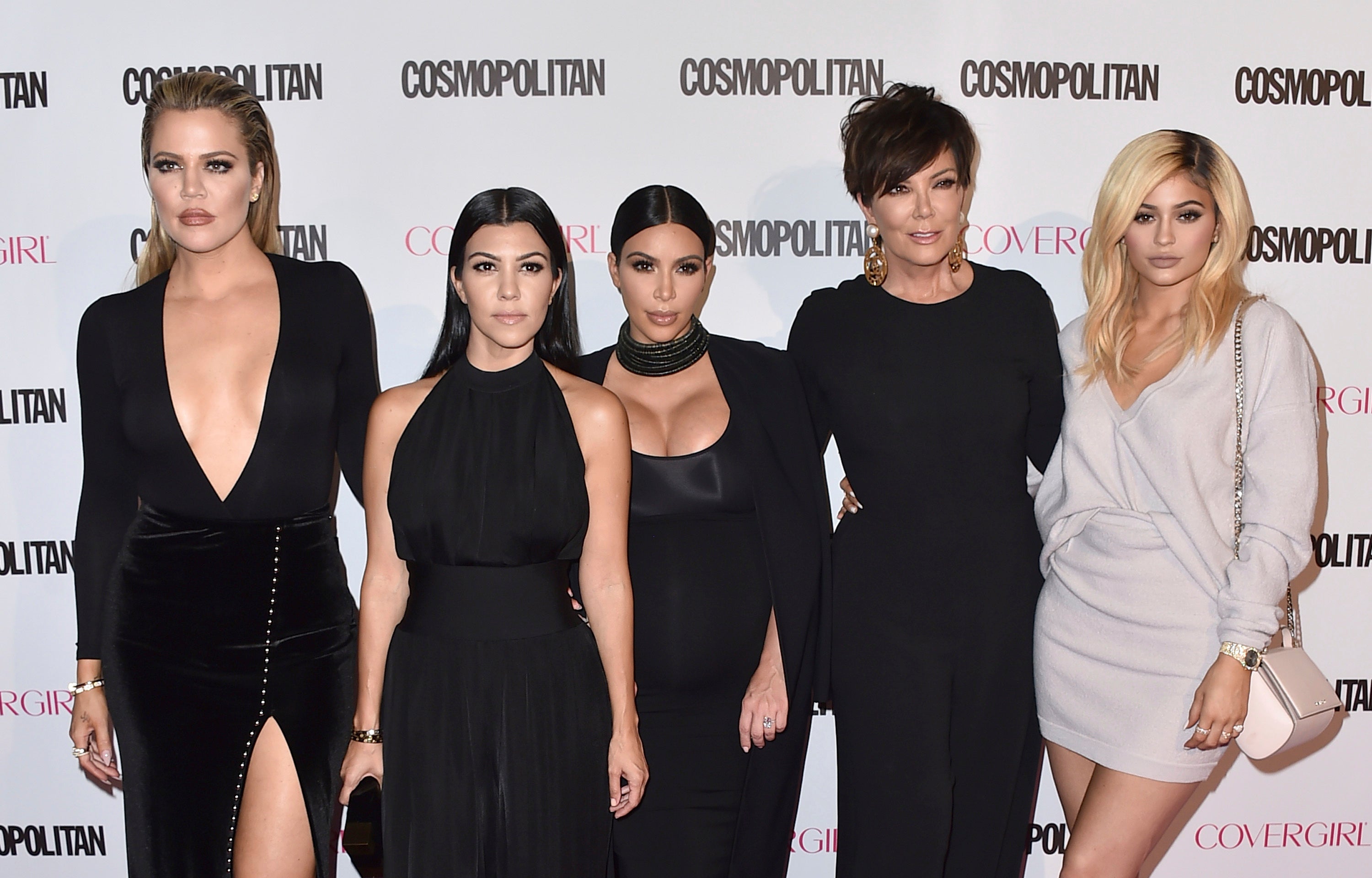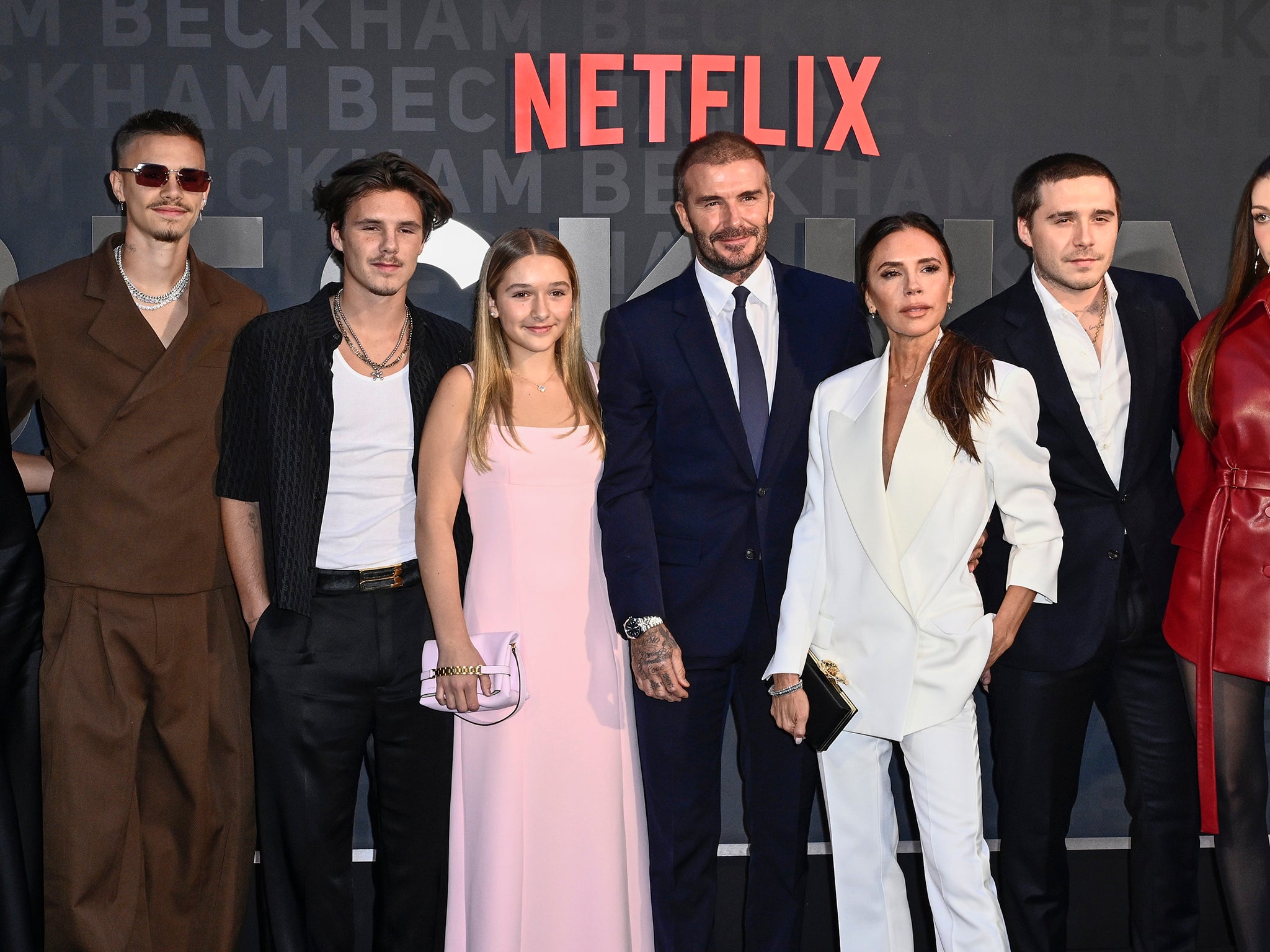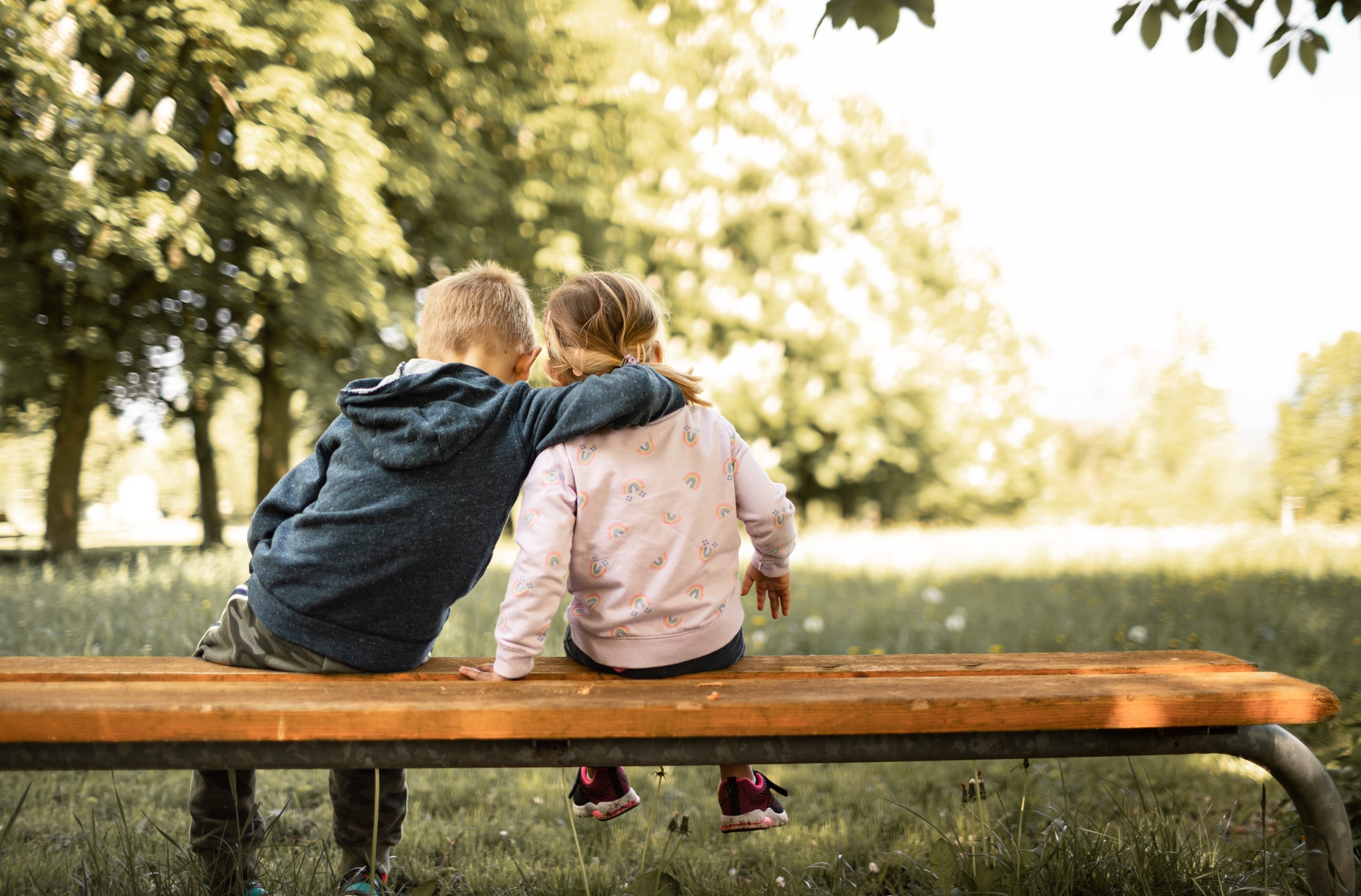How the sibling relationship will completely change in the next 10 years
Whether it is the drama between Prince William and Prince Harry, or the endless fascination with the Beckham brood, Chloe Combi examines the relationship we have with our siblings and looks at how it about to become more important than ever before


Today, not many of us can quote much poetry, but there’s a reason why Philip Larkin’s “This Be the Verse” is an exception. It starts with the famous lines: “They f*** you up, your mum and dad./ They may not mean to, but they do.” Quite simply, lots of us can relate to it. Whether it’s Freud’s shocking examination of the parent/child relationship, pushy Mrs Bennet in Pride and Prejudice, the buzzkill parents in popular teen films of the Eighties, or the recent TikTok-fuelled hatred of Kevin McCallister’s parents in the Home Alone films (the real baddies, apparently), popular culture has always held up a mirror to our complex relationships with our parents.
But after I did some serious research into the motivations and preoccupations of the younger generations – Gen Z and Gen A – something even more important than the parent-child dynamic emerged for many young people: the power of the sibling relationship.
In the UK, approximately 80 per cent of us have siblings; in the USA, it’s 82 per cent. Even as birth rates fall and one-child families become more common, the sibling relationship remains something most of us have experienced and been shaped by – often more than we realise.
Upon asking the simple question: “How do you feel about your brother or sister?” or “What’s your relationship like with your sibling?”, suddenly the room became a sea of hands, and even the quietest and most introverted kids had experiences they wanted to share.
More intriguingly, the responses elicited answers that were the stuff of poetry (Larkin would be proud), touching on themes of love, hatred, injustice, pride, resentment, jealousy, and revenge. Nobody, it seems, has a half-hearted opinion about their siblings. Sibling rivalry and resentment is a tale as old as time and features heavily in our oldest and most sacred texts – which is probably why we remain so fascinated with celebrity families like the Trumps and the Beckhams, and the Shakespearean-lite relationship between Prince William and Prince Harry.
As the royal family’s latest drama plays out, most of us have an opinion on whether we sympathise more with the brash and traditional heir, William, or the more in-touch-with-his-feelings and wounded “spare”, Harry – and this may well be influenced by our own family order and perspective.
In her book Siblings, psychologist Linda Blair discusses how “characteristics typically associated with each birth order position are learnt and contribute generously to the formation of our character” – and the evidence certainly backs this up.
In her chapter “Understanding Sibling Rivalry”, Blair notes: “Whenever one of your children is faced with their siblings getting better marks, more prizes, or in some way doing better than they do, that child will redouble their efforts to try and outdo the others. Their aim will be to become the ‘best’ one in [the parents’] eyes. This rivalry has the potential to create negative feelings, jealousy, and family discord.”
While this is on full display with the royals, it plays out in homes across the country, too. Take Oscar, 22, who says he, like Harry, always felt he lived in his brother’s shadow: “Whereas my brother – who’s ironically called Harry – thinks Prince Harry is a whiner and should shut up and get on with his privileged life.”
Tom, 16, has sympathy for both princes – something influenced by his lived experience and family order: “Oh, me and my brothers are complex. I’m the youngest and I try to stay out of it, but I get dragged in, and I sometimes wonder if my older brothers like each other at all. They’re often in a full-on war. Fists fly, stuff gets broken, and they don’t talk for weeks.”

Siblings form our first significant peer group and point of comparison, and they are also a major factor in the relationship we have with our parents. Blair describes the importance of our sibling relationships both in the present and as an imprint of the family past: “Nobody shares this history with you in the whole world.”
It’s certainly true that it’s easier to navigate the present and look forward to the future if you’ve made peace with the past – and nothing shapes this more than our family relationships.
Another major finding from my research was that, despite most parents’ genuine belief that they love and treat their children equally, the children rarely see it that way. The majority of children and teens I spoke to cited some perceived injustice or inequality in how they were treated compared to their siblings. Common complaints included brothers being given more freedom than sisters, girls receiving more affection than boys (particularly from fathers), and one sibling being favoured over another for a variety of complicated reasons.
Caitlin, 15, says: “Me and my brother [17] have an ongoing scorecard for who the favourite is with Mum. He swears he’s winning, I swear I’m winning. But I’ll still miss him when he goes to uni next year – the big idiot.” Belle, 12, says: “My older brother has special needs, and my parents spend a lot of time on him. Sometimes I feel upset about this, and then I feel terrible and guilty because I really love my brother.”

Maya, 15, says: “I hate – I mean hate – my [older] sister at times. I get this feeling in the pit of my stomach that no one else can make me feel, but at the same time, if anyone said anything bad about her or hurt her, I’d want to kill them. It’s weird.”
In the last couple of decades, there have been significant social changes that have both shifted and deepened the ties between brothers and sisters. Modern parenting and technology mean parents and carers are more pressured to know where their children – even older teens – are at all times. Combined with the high cost of living and the long tail of pandemic habits, children and teens now spend far more time at home than they did a generation ago.
As a result, siblings in their formative years are socialising much more together than before. They are also more likely to have mixed social circles – making modern sibling relationships more socially meaningful than ever.
Ben, 16, says: “I have loads of friends who are my brother’s friends, and he games with mine and hangs out all the time. My dad likes it, but he thinks it’s weird. He says his brother would have beaten him up if he tried to hang out with his mates.”
Moreover, as housing becomes ever more expensive – by 2030, it’s estimated that 84 per cent of people in their late twenties will still be living at home – siblings are not only our longest emotional relationships but also some of the people we’ll live the longest with. This intensifies the sibling bond – sometimes for better, sometimes for worse.
Leo, 25, says: “My brother and sister both live at home. My sister is 22 and my brother is nearly 29. Sometimes it’s fun – you sort of feel like teenagers and have a laugh – but sometimes you absolutely hate it and realise it’s not natural to be living together this long and bickering like kids.”

Anecdotally, I’ve noticed many people in their twenties and thirties planning to buy or rent property with their siblings. While statistics on this new phenomenon are limited, a 2024 report by Co-Buy in the USA found that 39 per cent of co-ownership arrangements now include relatives.
As serious relationships and marriage rates sharply decline among younger adults, increasing numbers of older Gen-Zers and millennials view cohabiting with siblings as both pragmatic and affordable. Simon, 23, says: “I’m saving up to buy a property with my brother, Lewis. My parents are on the verge of killing us if we stay at home much longer, and they’re helping us a bit with a small house. I think it’ll be all right. I trust Lew more than I do any of my mates – or even my boyfriend, who I’ve been with for over a year.”
Family relationships and their impact are increasingly under the microscope. One of the buzziest terms on social media is “going no contact” – essentially self-selected family estrangement. Reflecting the increasing strain some of these relationships face, family therapy is on the rise, as we come to appreciate not only our mental wellbeing but how our family interconnectedness affects it.
Ultimately, most of us with siblings will admit it’s a relationship that has brought us as much joy as pain – regardless of the occasional fistfight or whack with a set of hair straighteners. The modern age has conspired to make it an even more important relationship, forging bonds that, if navigated carefully, young adults will trust and rely on for the rest of their lives.
Join our commenting forum
Join thought-provoking conversations, follow other Independent readers and see their replies
Comments

Bookmark popover
Removed from bookmarks